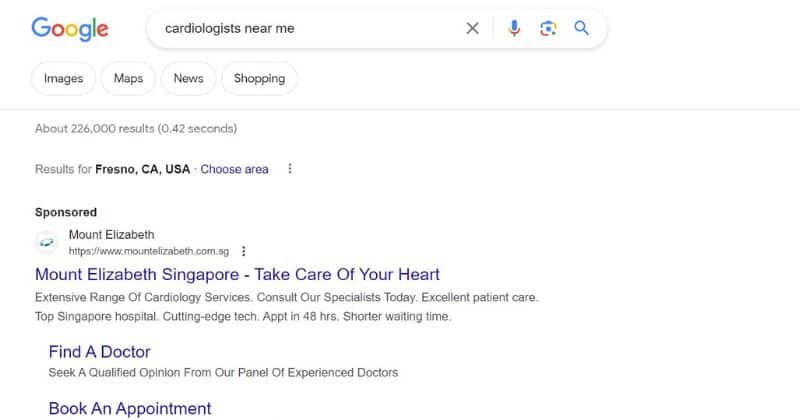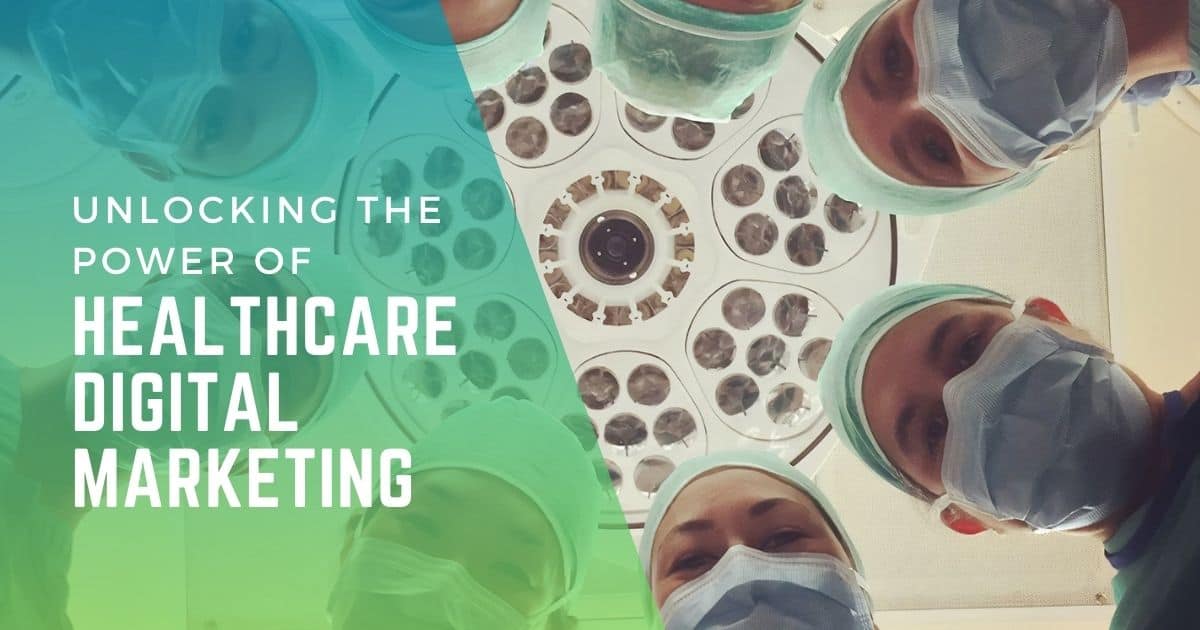Ever Googled a health concern and felt a sense of relief when a trusted source like Mayo Clinic article popped up? That’s healthcare digital marketing, where smart online tactics create a bond between you and your healthcare provider. It’s like having a mini-MD on your smartphone, offering quick advice until you get trustworthy advice.
Challenges? Absolutely. How do you know you can trust this digital info in the age of YMYL? As a seasoned digital marketer with a focus on healthcare, I’ve broken down complex topics and created digital strategies that foster patient-doctor connections. Relax, you’ll get actionable insights to tackle these marketing challenges here.
Understanding this topic is like having a health marketing cheat sheet. For medical practices and organizations, it’s a goldmine. You’ll learn how to personalize experiences and, most importantly, how to build trust. So, are you ready for the tips that could make your healthcare marketing genuinely effective? Let’s get to it!
Key Takeaways
- Master Healthcare Digital Marketing Strategies: Understand how SEO, social media, email, and content marketing can help healthcare providers connect with patients and build trust.
- Navigate Data-Driven Marketing: Learn the importance of data collection and analysis in personalizing patient experiences and ensuring HIPAA compliance.
- Implement CRM in Healthcare: Discover how Customer Relationship Management tools can improve patient satisfaction and loyalty.
- Adapt to Industry Changes: Stay ahead by understanding how to adapt your digital marketing strategies to algorithm updates and emerging AI trends in healthcare marketing.
The Growing Importance of Digital Marketing in the Healthcare Industry

The healthcare industry is shifting significantly as digital marketing takes center stage. Traditional marketing methods, such as print, television, radio, and direct mail, replace more efficient and effective digital marketing strategies. This transformation is fueled by consumers’ increasing reliance on online platforms for health-related information. In fact, 88% of individuals search the internet for health-related information, emphasizing the need for healthcare providers to have a strong online presence.
This transition is driven by the growing popularity of digital marketing and the ever-evolving expectations of healthcare consumers. Patients today demand personalized and engaging digital experiences with their healthcare providers, and digital marketing offers a means to achieve this. Healthcare providers can connect and engage with current and prospective patients by leveraging digital channels, ultimately fostering trust and credibility.
The Shift from Traditional to Digital Marketing
As traditional marketing tactics fade into the background, healthcare organizations use digital marketing strategies to reach their target audience more effectively. One such digital strategy is email marketing, which offers cost-effective, immediate, and highly personalized communication. Research shows that educational content is most effective for the healthcare industry, with wellness tips and advice, symptom relief suggestions, and information about common conditions generating higher conversion rates than hospital newsletters.
However, healthcare providers must exercise caution when utilizing email marketing tactics, prioritizing patient privacy and protecting sensitive personal information. By adhering to these guidelines and focusing on personalization, healthcare marketers can harness the power of digital marketing to generate high-quality leads and improve patient referrals.
Meeting Consumer Expectations
To meet the ever-changing expectations of healthcare consumers, healthcare marketers must employ innovative digital marketing tactics that provide personalized patient experiences. A comprehensive digital marketing strategy incorporating social media, content marketing, search engine optimization (SEO), and email marketing is crucial for staying ahead in today’s competitive landscape.
Personalization in healthcare marketing is vital, as health is an individual matter, and the reasons for seeking medical attention can vary greatly from general health to life-threatening illnesses. By targeting patients based on their age, gender, location, and other demographics, healthcare providers can deliver tailored content that meets each patient’s unique needs. This personalized approach helps build trust and credibility and fosters stronger connections between healthcare providers and their patients.
Essential Digital Marketing Strategies for Healthcare Providers

Healthcare providers must leverage essential digital marketing strategies to effectively reach their target audience, such as SEO, social media, email marketing, and content marketing. These strategies not only help healthcare organizations establish an online presence but also enable them to engage and retain patients through meaningful interactions.
By implementing these digital marketing strategies, healthcare providers can reach a broader audience, foster patient engagement, and ensure that their marketing efforts yield tangible results. This can lead to improved patient satisfaction, loyalty, and overall health outcomes.
Search Engine Optimization (SEO)

SEO plays a crucial role in the healthcare industry and digital marketing, as search engines are the source of three times as many visitors to hospital websites as other organic traffic sources. Furthermore, 44% of patients who research hospitals on a mobile device end up scheduling an appointment, highlighting the importance of optimizing websites for site visitors on desktop and mobile devices.
Healthcare providers can optimize their websites for local search to attract patients in their area who are actively seeking medical services. By creating and optimizing a Google My Business profile, adding appropriate schema markup to landing pages, and building local backlinks, healthcare organizations can improve their local SEO and draw in more patients.
Social Media Marketing
Social media marketing is another essential digital marketing strategy for healthcare professionals and providers, allowing them to interact with their target audience and increase brand recognition. By creating and sharing content on social media platforms, healthcare professionals and organizations can engage patients, share valuable information, and foster trust.
Additionally, paid social media advertising can be a highly effective approach to reaching a specific target audience and generating leads for healthcare services. Healthcare marketers can craft successful campaigns that resonate with potential patients and drive engagement by analyzing research and historical data on internet users.
Content Marketing
Content marketing is vital to healthcare digital marketing, enabling healthcare providers to reach and inform their target audience effectively. By creating and distributing valuable content, healthcare organizations can establish thought leadership and foster trust with their audience.
In addition to blog posts, healthcare providers can leverage other content formats, such as videos, infographics, and podcasts, to engage patients and provide valuable information. By consistently delivering relevant and engaging content, healthcare organizations can build strong connections with their audience and enhance patient satisfaction.
Harnessing Data-Driven Decisions in Healthcare Digital Marketing

Data-driven decisions are key in healthcare digital marketing, with data collection and analysis being essential for more targeted advertising, understanding customer behavior, and ensuring HIPAA compliance. By collecting and analyzing data, healthcare providers can gain valuable insights into their target patient demographic, make informed decisions based on data, and measure the effectiveness of their marketing campaigns.
Moreover, healthcare organizations must adhere to HIPAA policies and data privacy regulations when utilizing digital tracking and data collection tools. Healthcare providers can safeguard patient information and maintain patient trust by ensuring compliance with these policies and regulations.
Data Collection and Analysis
Data collection and analysis are paramount in healthcare digital marketing, as they provide healthcare marketers with the ability to understand their target demographic and customer journey, make decisions based on data, and assess the effectiveness of their campaigns. By leveraging data, healthcare providers can gain valuable insights into customer behavior and focus on delivering superior medical care.
With the ever-evolving landscape of digital marketing in healthcare, healthcare providers must stay up-to-date with the latest trends and best practices. By continuously collecting and analyzing data, healthcare organizations can adapt their marketing strategies to serve their patients better and remain competitive in the industry.
Ensuring Patient Privacy and HIPAA Compliance
Ensuring patient privacy and HIPAA compliance in healthcare digital marketing is essential to protect patient information and uphold trust with patients. Healthcare providers must take necessary measures to ensure compliance with HIPAA policies and data privacy regulations mandated by Google Analytics when utilizing digital marketing platforms and tools.
By adhering to these guidelines and prioritizing patient privacy, healthcare organizations can safely utilize first-party data to other health systems, send HIPAA-compliant emails, and maintain a strong online presence without compromising patient information.
Personalizing Patient Experience with Healthcare CRM

Healthcare CRM (Customer Relationship Management) solutions can help personalize patient experiences and increase engagement while providing insights into customer behavior. By leveraging CRM tools, healthcare providers can enhance patient satisfaction, loyalty, and health outcomes while gaining valuable insights to attract, acquire, and retain patients.
Implementing CRM solutions in healthcare digital marketing enables providers to streamline processes, improve communication, and deliver personalized and relevant content to their patients, ultimately fostering stronger connections between providers and patients.
Benefits of CRM in Healthcare Marketing
Utilizing CRM in healthcare marketing offers numerous advantages, such as improved patient acquisition experience, enhanced communication and customer support, and tracking marketing progress. Additionally, CRM solutions allow healthcare organizations to better understand their customers and identify patient knowledge through effective data management.
Moreover, healthcare CRM platforms can be utilized to create highly detailed target personas for building marketing campaigns, allowing healthcare providers to leverage information about prior interactions with their patients and create customized content that resonates with their audience.
Implementing CRM Solutions
CRM solutions are vital in healthcare digital marketing for enhancing patient experience, communication, and customer support. To effectively implement CRM solutions, healthcare providers should select the appropriate software, integrate it with existing systems, and provide staff with training to ensure proper utilization.
By implementing CRM solutions, healthcare providers can not only streamline processes and improve communication but also leverage valuable insights to deliver personalized content and foster stronger connections with their patients.
Monitoring and Measuring Digital Marketing Impact

Monitoring and measuring digital marketing impact is crucial for healthcare providers to gauge the effectiveness of their marketing efforts and adjust their strategies accordingly. By utilizing tools for tracking and analytics, healthcare organizations can stay ahead of the competition, attract more patients to their services, and ensure their marketing campaigns yield tangible results.
Adapting to algorithm changes is also essential in digital marketing, as it can boost visibility, refine targeting, and keep up with Google’s updates, further enhancing the efficiency of marketing strategies.
Tools for Tracking and Analytics
Healthcare providers can leverage tools such as Google Analytics and social media analytics for tracking and analytics in digital marketing. By utilizing these tools, healthcare organizations can monitor brand awareness, blog traffic, social engagement, click-through rates, and conversion metrics.
However, healthcare organizations must ensure compliance with HIPAA policies and data privacy regulations when utilizing digital tracking and data collection tools. Adhering to these policies and regulations allows healthcare providers to safely analyze data and gain valuable insights without compromising patient privacy.
Adapting to Algorithm Changes
Staying up-to-date with algorithm alterations and routinely monitoring data in Google Analytics and Google Search Console are essential for healthcare providers to adapt to algorithm modifications. By adjusting their marketing strategies in response to these changes, healthcare providers can stay ahead of the competition and attract more patients to their services.
Ensuring that marketing campaigns and web pages are aligned with the latest algorithm updates helps healthcare organizations maintain visibility in search results and enables them to deliver relevant and engaging content to their target audience.
Over to You
In healthcare, using digital marketing is no longer optional; it’s essential for meaningful patient connections. So, are you ready to enhance your healthcare practice with digital tools?
Time to act. Use digital tactics to lead in healthcare. Your patients will thank you, and you’ll know you’re making a real impact.
FAQs
What is digital health marketing?
Digital health marketing utilizes online platforms to promote healthcare services and products. It employs content marketing, SEO, and social media advertising strategies to target specific audiences, aiming to enhance patient engagement and brand recognition. The approach is data-driven, allowing for personalized and timely interactions.
What does healthcare marketing do?
Healthcare marketing involves strategies to promote medical services, facilities, or products to a targeted audience. The aim is to increase patient engagement, improve brand recognition, and boost revenue. Techniques include content marketing, social media campaigns, and Search Engine Optimization (SEO) to reach and inform current and potential patients effectively.
What is healthcare digital transformation?
Healthcare digital transformation refers to integrating digital technologies into healthcare services, operations, and patient care. This shift streamlines administrative processes, enhances data analytics, and improves patient outcomes through technologies like Electronic Health Records (EHR), telemedicine, and wearable medical devices.
How do you market medical technology?
Marketing medical technology involves targeted digital strategies, including specialized SEO for medical keywords and content marketing that addresses regulatory compliance. Leveraging social media channels to demonstrate technological efficacy and patient benefits is also key. These approaches aim to build credibility and facilitate meaningful engagement with healthcare professionals.
Why is digital marketing important for health care?
Digital marketing enables healthcare providers to reach a wider audience, offering accessible and timely health information. It fosters patient engagement, facilitates personalized care, and improves service delivery through data analytics. Importantly, it allows healthcare institutions to build trust and credibility, which is essential for patient loyalty.



